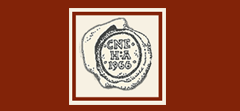Aims & Scope
Northeast Historical Archeology is intended to further the Council for Northeast Historical Archaeology (CNEHA)’s aims to stimulate and encourage the collection, preservation, and dissemination of knowledge and information concerning the practice of historical archaeology in northeastern North America. The journal publishes materials dealing with the archaeology of the entire historical period, from initial contact of Old and New World peoples during the age of European expansion to the Industrial Revolution. Northeast Historical Archaeology is intended for professional and avocational archaeologists as well as for non-archaeologists (preservationists, museum specialists, etc.) with an interest in the material history and archaeology of the Northeast region.
These regions include the U.S. states and Canadian provinces of: Connecticut, Delaware, District of Columbia, Maine, Maryland, Massachusetts, Newfoundland and Labrador, New Brunswick, New Hampshire, New Jersey, New York, Nova Scotia, Ontario, Pennsylvania, Prince Edward Island, Quebec, Rhode Island, Vermont, Virginia, and West Virginia.
Ethical Standards
of
The Council for Northeast Historical Archaeology
- The attainment of knowledge should be the primary objective of all archaeological excavations.
- The archaeologist should have working knowledge of the history and material culture of the area and historical periods in which he/she is working.
- Comprehensive historical research must be an integral part of the investigation of any historic site.
- All historical site excavations should be conducted according to the accepted basic standards of the profession.
- The archaeologist in charge of excavation shall be responsible for determining the manner of excavation, the size of the work force, and the required qualifications of those employed.
- Adoption of uniform and acceptable methods of field procedures, reporting and mapping shall be encouraged. A Master Plan should be applied on all large sites, and detailed maps to which future excavations can be related should be drawn.
- Field and laboratory manuscripts should be made available to anyone who requests them for scholarly research purposes. Researchers should respect the on-going research of others.
- It is the responsibility of the organization financing or conducting the excavation to see that a comprehensive final archaeological report is completed in either manuscript or published form. The archaeologist in charge should prepare this.
- Artifacts should be properly cleaned, conserved, catalogued, and stored to prevent deterioration so that the data are easily accessible. Archaeologically retrieved faunal and vegetal matter should receive the same care.
- Collections should be maintained at appropriate institutions, which have the capability and means for the proper handling and use of archaeological material. Where possible, archaeological assemblages should be kept together and made available for purposes of scholarly study and research.


